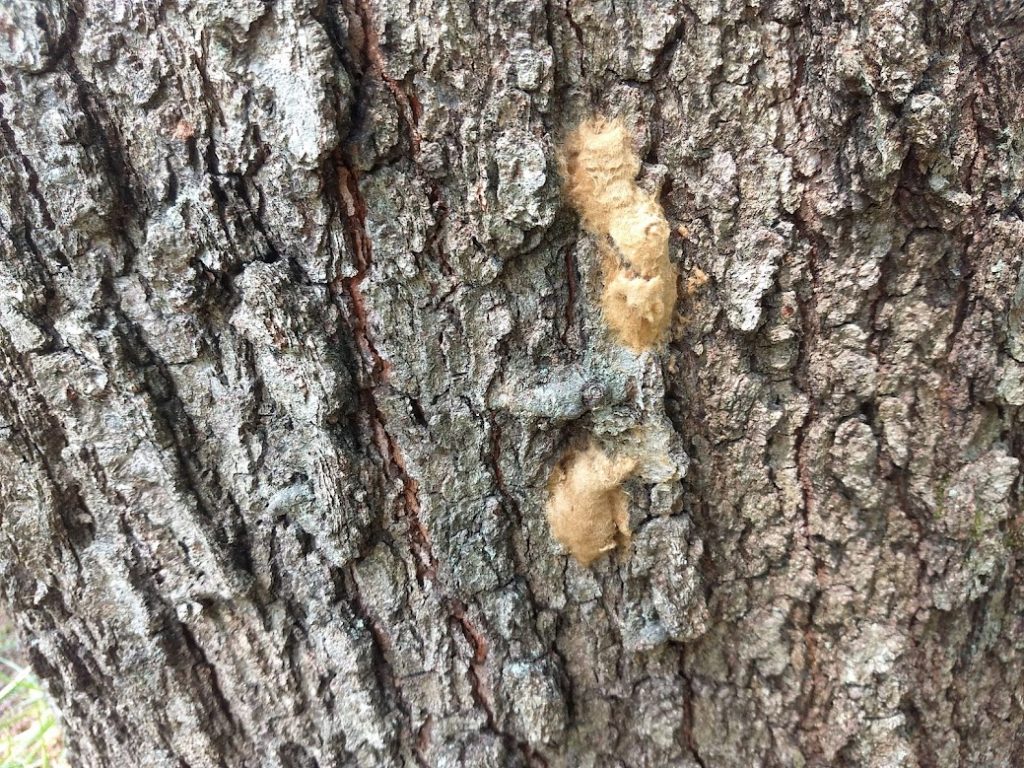Due to flooding, the pool at the Warren Community Center will be closed until further notice. The remainder of the community center is open.
Be on the Lookout for Gypsy Moth Egg Masses
Spongy Moths (Lymantria dispar), formerly known as Gypsy Moths are an exotic pest from Europe that have few predators in the United States. Therefore, Spongy Moth populations can grow very large, and they can become a nuisance and detrimental to a homeowner. Large populations can defoliate trees. Trees with other stress factors, such as drought, could be damaged by this type of defoliation. Several years of recurring defoliation can eventually kill trees. The large number of caterpillars and their waste (frass) can prevent homeowners from using their outdoor spaces in the summertime. In some cases, the caterpillars can cause allergic reactions in people.
Spongy Moth adult females lay the egg masses in July. Egg masses are a buff yellow-brown color, typically tear-drop shaped and 1–2 inches in length. Masses are laid in protected areas on trees as well as on places such as play equipment, lawn furniture, and soffits on homes, garages, vehicles and wooden fences. Egg masses laid in mid-July through August will survive the winter and hatch in the spring producing hundreds of caterpillars from each egg mass.
In late fall of each year Macomb County MSU Extension does a Spongy Moth survey for egg masses. Homeowners who believe they have Spongy Moth egg masses on their property should contact the Macomb County MSU Extension office at 586-469-6432 and request to be included in the fall survey. Calls received after December 1 may go on a waiting list.


